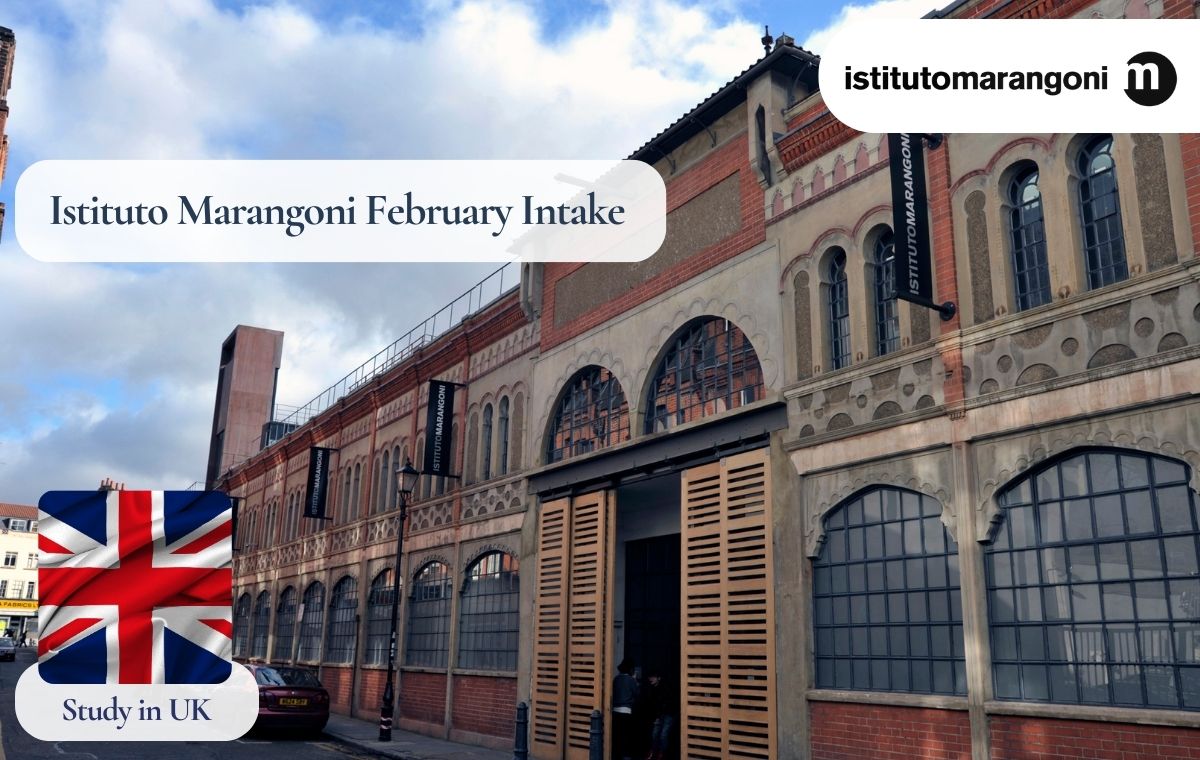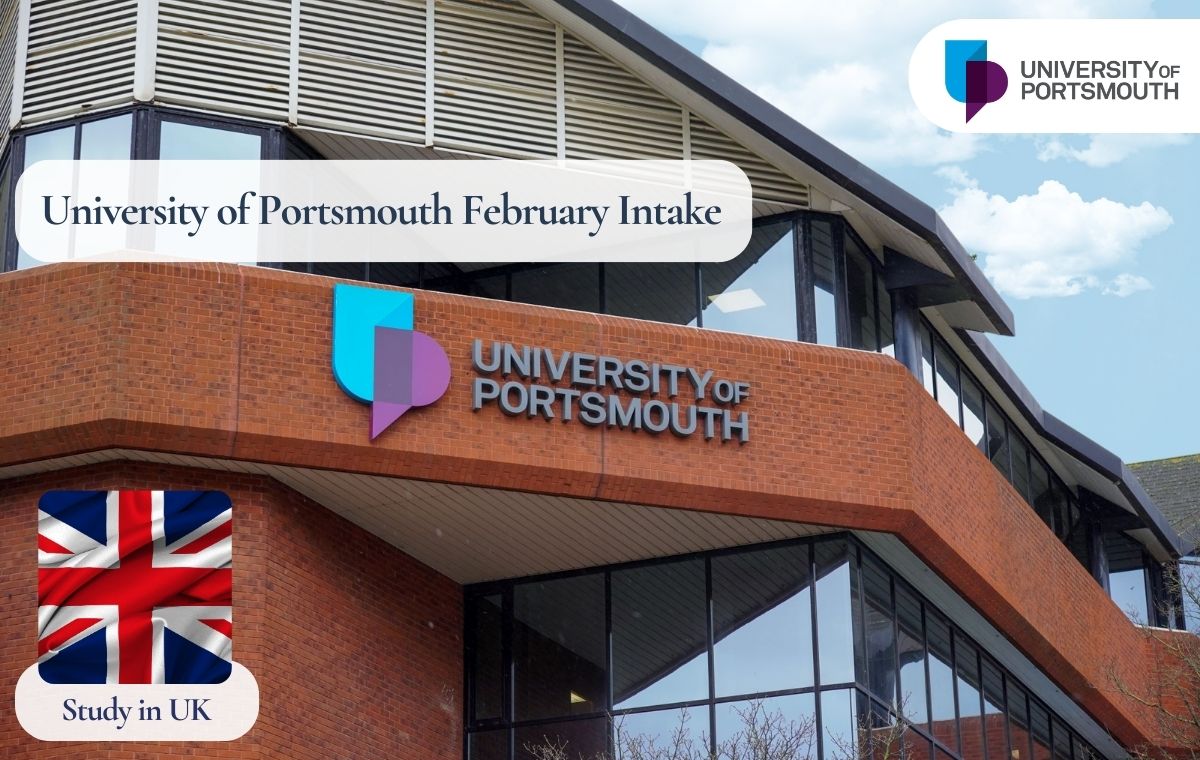Table of Content
- Overview
- Why Choose MBBS in the UK?
- Which are the Top 10 Universities for MBBS in UK?
- What are the Admission Requirements for MBBS in UK?
- What is the Application Process for MBBS in UK?
- What are the MBBS Scholarships in the UK for Indian Students?
- Which are the Affordable Universities for MBBS in the UK for Indian Students?
- What is the Cost of Living in the UK?
- Which are the Highest-Paying Medical Jobs in UK?
- Wrapping Up!
- FAQ
Overview: MBBS in UK
Pursuing an MBBS (Bachelor of Medicine, Bachelor of Surgery) degree in the UK is a prestigious and highly sought-after achievement. This undergraduate degree from a renowned UK university ensures a solid foundation in medical sciences, clinical practice, and research. The UK's esteemed medical schools, such as Oxford and Cambridge, offer world-class education, cutting-edge facilities, and expert faculty. An MBBS from the UK opens doors to:
- Global recognition and respect
- Unparalleled career opportunities
- Eligibility for PLAB (Professional and Linguistic Assessments Board) and USMLE (United States Medical Licensing Examination)
- Specialization in various medical fields
- Research and academic pursuits
- Leadership roles in healthcare
Graduates from UK medical schools are highly sought after by top hospitals and healthcare organizations worldwide. The MBBS degree from the UK is a hallmark of excellence, demonstrating a strong commitment to medical education, clinical expertise, and patient care. It empowers individuals to make a meaningful impact in the medical field, improving lives and shaping the future of healthcare.
Why Choose MBBS in the UK?
Choosing to study medicine in the UK is a decision that can change your career in the medical field and provide you with a world-class education.
Here’s Why Choose MBBS in the UK is an exceptional choice for aspiring doctors:
1. Global Recognition
MBBS from the UK is recognized worldwide, including WHO, GMC, and MCI. Graduates can practice medicine globally, with eligibility for PLAB, USMLE, and other licensing exams.
2. World-Class Education
UK medical schools offer cutting-edge curriculum, research opportunities, and expert faculty. Institutions like Oxford and Cambridge provide unparalleled learning experiences.
3. Clinical Exposure
UK hospitals provide diverse clinical exposure, hands-on training, and patient care experience. Students work with experienced professionals, developing essential skills.
4. Research Opportunities
UK medical schools are renowned for innovative research. Students participate in groundbreaking projects, collaborating with leading scientists and clinicians.
5. International Community
UK universities attract students from worldwide, fostering cultural exchange and networking. Graduates join a global alumni network.
6. Career Prospects
MBBS from the UK opens doors to top hospitals, research institutions, and healthcare organizations. Graduates secure prestigious residencies and fellowships.
7. English Language
English is the global language of medicine. Studying in the UK enhances language skills, facilitating international communication.
8. Cultural Diversity
The UK offers a unique cultural experience, with diverse communities and lifestyles. Students develop empathy and understanding.
9. Safety and Security
The UK is a safe and secure country, with low crime rates and strict laws.
10. Post-Study Options
Graduates can pursue postgraduate studies, specialty training, or work in the NHS. The UK offers various visa options for international students.
11. Accreditation
UK medical degrees are accredited by the General Medical Council (GMC), ensuring high standards.
12. Scholarship Opportunities
Various scholarships are available for international students, including government-funded programs.
Which are the Top 10 Universities for MBBS in UK?
The UK offers a prestigious range of universities known for their excellent programmes in medicine and surgery.
But with so many top-notch institutions, how do you choose the right one for you?
Here is a curated list of the best universities offering medicine and surgery programmes in the UK, each renowned for their excellence in medical education and research:
| Rank | University Name | Location | Tuition Fees (Approx.) | Course Duration | Entry Requirements |
| 1 | University of Oxford | Oxford, England | £47,000 - £50,000 per year | 6 years | A-Levels in Chemistry & Biology, High UCAT score |
| 2 | University of Cambridge | Cambridge, England | £58,000 - £63,000 per year | 6 years | A-Levels in Chemistry & Biology, High BMAT score |
| 3 | Imperial College London | London, England | £47,000 - £55,000 per year | 6 years | A-Levels in Chemistry & Biology, High UCAT score |
| 4 | King’s College London | London, England | £44,000 - £50,000 per year | 5 years | A-Levels in Chemistry & Biology, High UCAT score |
| 5 | University College London (UCL) | London, England | £45,000 - £50,000 per year | 6 years | A-Levels in Chemistry & Biology, High BMAT score |
| 6 | University of Edinburgh | Edinburgh, Scotland | £40,000 - £45,000 per year | 5 years | A-Levels in Chemistry & Biology, High UCAT score |
| 7 | University of Manchester | Manchester, England | £38,000 - £45,000 per year | 5 years | A-Levels in Chemistry & Biology, High UCAT score |
| 8 | University of Glasgow | Glasgow, Scotland | £36,000 - £45,000 per year | 5 years | A-Levels in Chemistry & Biology, High UCAT score |
| 9 | University of Bristol | Bristol, England | £40,000 - £45,000 per year | 6 years | A-Levels in Chemistry & Biology, High UCAT score |
| 10 | University of Warwick | Coventry, England | £40,000 - £50,000 per year | 5 years | A-Levels in Chemistry & Biology, High UCAT score |
What are the Admission Requirements for MBBS in UK?
Obtaining an MBBS degree in UK is an important step towards becoming a doctor. Here is a clear overview of the basic requirements:
Academic Requirements:
- A-Levels: Typically AAA-ABB (including Biology, Chemistry, and Mathematics)
- IB Diploma: 36-38 points (including Biology, Chemistry, and Mathematics)
- GCSEs: Minimum 9-8 grades in English, Mathematics, and Sciences
- Bachelor's degree (for graduate-entry programs)
Entrance Exams:
- UCAT (University Clinical Aptitude Test)
- BMAT (Biomedical Admissions Test)
- GAMSAT (Graduate Australian Medical Schools Admissions Test) (for graduate-entry programs)
English Language Proficiency:
- IELTS: 7.0-8.0 overall (minimum 6.5-7.0 in each section)
- TOEFL iBT: 100-110 overall (minimum 22-24 in each section)
Additional Requirements:
- Work experience or volunteering in healthcare
- Personal statement (explaining motivation for studying medicine)
- References from academic or professional mentors
- Interview (MMI or traditional)
Specific Requirements:
- Some universities require specific A-Level or IB subjects (e.g., Physics)
- Some universities have additional entrance exams or assessments
Clearing and Visa Requirements:
- Police certificate and DBS check
- Proof of immunizations
- Tier 4 student visa (for international students)
Key Dates:
- UCAS application deadline: October 15th (Medicine and Oxbridge)
- Interview period: November-February
- A-Level results: August
What is the Application Process for MBBS in UK?
Step 1: Research and Choose Universities (June-September)
- Identify top medical schools in the UK
- Check entry requirements, course structure, and duration
- Shortlist 4-5 universities
Step 2: Register with UCAS (September-October)
- Create a UCAS account
- Fill in personal details, academic qualifications, and work experience
- Submit application fee (£13-24)
Step 3: Submit Applications (September-October 15th)
- Complete university-specific applications
- Upload supporting documents (e.g. transcripts, references)
- Meet UCAS deadlines for Medicine and Oxbridge
Step 4: Take Entrance Exams (September-November)
- UCAT, BMAT, or GAMSAT (depending on university requirements)
- Prepare for exams in advance
Step 5: Attend Interviews (November-February)
- MMI (Multiple Mini Interview) or traditional interviews
- Prepare for common medical school interview questions
Step 6: Receive Offers (January-March)
- UCAS Track updates
- Firm and insurance choices
Step 7: Meet Conditions (April-August)
- A-Level or IB results
- Complete any additional requirements (e.g. immunizations)
Step 8: Confirm Place and Apply for Visa (August-September)
- Confirm university place
- Apply for Tier 4 student visa (international students)
Step 9: Pre-Registration and Registration (September)
- Complete pre-registration tasks
- Register with the university and GMC
If you don’t want to follow these step all by yourself you should contact our overseas education consultants to get admission in UK for a MBBS degree.
What are the MBBS Scholarships in the UK for Indian Students?
Chevening Scholarship
The Chevening Scholarship is a prestigious award offered by the UK government to outstanding Indian students pursuing MBBS in the UK. Eligible candidates must be Indian citizens, have excellent academic records, and demonstrate work experience. The scholarship covers £18,000-£20,000 per year for 1-2 years, depending on the course duration. Applications are accepted online from August to November. Interested candidates can visit the official website for more information.
Commonwealth Scholarship
The Commonwealth Scholarship is awarded to Indian students pursuing MBBS in the UK. To be eligible, candidates must be Indian citizens and have secured admission to a UK medical school. The scholarship provides £15,000-£20,000 per year for 5-6 years. Applications are accepted online from December to February. Candidates can visit the Commonwealth Scholarship Commission's website for further details.
Charles Wallace India Trust Scholarship
The Charles Wallace India Trust Scholarship supports Indian students pursuing MBBS in the UK. Eligible candidates must be Indian citizens and currently enrolled in a UK medical school. The scholarship awards £1,000-£3,000 per year for 1-2 years. Applications are accepted online from January to March. Interested candidates can visit the Charles Wallace India Trust website for more information.
British Council Scholarship
The British Council Scholarship is offered to Indian students pursuing MBBS in the UK. Eligible candidates must be Indian citizens and have secured admission to a UK medical school. The scholarship provides £5,000-£10,000 per year for 1-2 years. Applications are accepted online from February to April. Candidates can visit the British Council website for further details.
University of Edinburgh Medical School Scholarship
The University of Edinburgh Medical School Scholarship is awarded to Indian students pursuing MBBS at the University of Edinburgh. Eligible candidates must be Indian citizens and have secured admission to the medical school. The scholarship provides £5,000-£10,000 per year for 5-6 years. Applications are accepted online from January to March. Interested candidates can visit the University of Edinburgh website for more information.
Imperial College London MBBS Scholarship
Imperial College London offers scholarships to Indian students pursuing MBBS. Eligible candidates must be Indian citizens and have secured admission to the medical school. The scholarship provides £5,000-£10,000 per year for 5-6 years. Applications are accepted online from October to December. Candidates can visit the Imperial College London website for further details.
University College London (UCL) Medical School Scholarship
UCL Medical School Scholarship is awarded to Indian students pursuing MBBS at University College London. Eligible candidates must be Indian citizens and have secured admission to the medical school. The scholarship provides £5,000-£10,000 per year for 5-6 years. Applications are accepted online from November to January. Interested candidates can visit the UCL website for more information.
Oxford and Cambridge Society of India (OCSI) Scholarship
The OCSI Scholarship supports Indian students pursuing MBBS at Oxford or Cambridge. Eligible candidates must be Indian citizens and have secured admission to either university. The scholarship awards £2,000-£5,000 per year for 1-2 years. Applications are accepted online from June to August. Candidates can visit the OCSI website for further details.
Indian Government Scholarship
The Indian Government Scholarship is awarded to Indian students pursuing MBBS in the UK. Eligible candidates must be Indian citizens and have secured admission to a UK medical school. The scholarship provides £5,000-£10,000 per year for 5-6 years. Applications are accepted online from April to June. Interested candidates can visit the MHRD website for more information.
UK Government's GREAT Scholarship
The UK Government's GREAT Scholarship is awarded to Indian students pursuing MBBS in the UK. Eligible candidates must be Indian citizens and have secured admission to a UK medical school. The scholarship provides £10,000 per year for 1 year. Applications are accepted online from January to March. Candidates can visit the British Council website for further details.
Which are the Affordable Universities for MBBS in the UK for Indian Students?
You don’t have to spend a fortune on your medical studies in the UK. For many Indian students, the appeal of studying medicine in the UK is often tempered by the high costs associated with it. However, there are universities that offer affordable medical programs without compromising on quality.
If you’ve been dreaming of becoming a doctor in the UK while staying on a budget, you’re in luck.
Here’s a guide to some of the most budget-friendly options that could make your dream come true!
| Rank | University Name | Location | Tuition Fees (Approx.) | Course Duration | Key Features |
| 1 | University of Sunderland | Sunderland, England | £25,000 - £28,000 per year | 5 years | Offers a 5-year MBBS program with focus on clinical skills; relatively affordable compared to other UK medical schools. |
| 2 | University of Lincoln | Lincoln, England | £25,000 - £28,000 per year | 5 years | Focus on student support and developing communication skills in healthcare. |
| 3 | University of Central Lancashire (UCLan) | Preston, England | £32,000 per year | 5 years | Strong emphasis on clinical placements and early patient interaction; good reputation for medical training. |
| 4 | Keele University | Keele, England | £30,000 - £34,000 per year | 5 years | Known for its flexible curriculum and emphasis on early clinical exposure. |
| 5 | University of Leicester | Leicester, England | £38,000 - £42,000 per year | 5 years | Good quality program with a focus on clinical training and research. |
| 6 | University of Bristol | Bristol, England | £40,000 - £45,000 per year | 6 years | Affordable for UK-based students, but slightly higher for international students. Offers a robust curriculum with significant clinical placements. |
| 7 | University of Southampton | Southampton, England | £38,000 - £42,000 per year | 5 years | Offers an integrated medical curriculum with clinical placements across the UK. |
| 8 | University of Warwick | Coventry, England | £40,000 - £45,000 per year | 5 years | Focuses on a broad, problem-based approach to medical education with strong clinical placements. |
| 9 | University of Dundee | Dundee, Scotland | £34,000 - £38,000 per year | 5 years | A reputable school with good facilities and a focus on clinical practice. |
| 10 | University of Aberdeen | Aberdeen, Scotland | £33,000 - £35,000 per year | 5 years | Strong reputation in medical research and clinical training. |
What is the Cost of Living in the UK?
As an overseas education consultant, I often get asked about the cost of living in the UK. The UK can be expensive, but with careful planning, you can manage your expenses. On average, international students spend around £800-£1,200 per month (approximately ₹70,000-₹1,05,000) which covers accommodation, food, transportation, utilities, and entertainment.
Accommodation costs range from £400-£700 (₹35,000-₹60,000), food costs between £200-£300 (₹17,000-₹26,000), transportation costs £50-£100 (₹4,500-₹9,000), utilities cost £50-£100 (₹4,500-₹9,000), and entertainment and miscellaneous expenses range from £100-£200 (₹9,000-₹18,000).
Notably, costs vary depending on the city, lifestyle, and personal choices, with London tendentially being pricier than other cities. For instance, average monthly costs in popular student cities are: London (£1,200-£1,800 or ₹1,05,000-₹1,58,000), Manchester (£800-£1,200 or ₹70,000-₹1,05,000), and Birmingham (£700-£1,100 or ₹60,000-₹95,000). These estimates are approximate, and we can discuss specific costs and create a personalized budget plan for your UK adventure!
Which are the Highest-Paying Medical Jobs in UK?
Graduating with an MBBS degree from the UK doesn’t just mean you’ve earned a prestigious degree; it’s your gateway to a range of highly paid and rewarding career paths.
The rigorous training and world-class education you receive opens the door to some of the most lucrative positions in medicine. Whether you’re passionate about direct patient care, conducting groundbreaking research, or shaping the future of medical practice, the opportunities are diverse and rewarding.
From supervising medical departments to performing complex surgical procedures, the UK offers exceptional career prospects for MBBS graduates.
Here’s an overview of some of the highest-paid medical roles you can aspire to:
| Rank | Medical Job Title | Average Salary (Per Year) |
| 1 | Surgeon (Consultant) | £100,000 - £150,000+ |
| 2 | Anaesthetist (Consultant) | £90,000 - £130,000 |
| 3 | Psychiatrist (Consultant) | £90,000 - £130,000 |
| 4 | General Practitioner (GP) | £80,000 - £100,000 |
| 5 | Orthopaedic Surgeon | £90,000 - £150,000 |
| 6 | Cardiologist (Consultant) | £90,000 - £120,000 |
| 7 | Radiologist (Consultant) | £80,000 - £120,000 |
| 8 | Obstetrician/Gynaecologist (Consultant) | £80,000 - £120,000 |
| 9 | Neurosurgeon (Consultant) | £100,000 - £160,000 |
| 10 | Plastic Surgeon | £80,000 - £120,000 |
| 11 | Oncologist (Consultant) | £80,000 - £120,000 |
| 12 | ENT Specialist (Otolaryngologist) | £80,000 - £120,000 |
| 13 | Dermatologist (Consultant) | £80,000 - £100,000 |
| 14 | Endocrinologist (Consultant) | £80,000 - £100,000 |
| 15 | Paediatrician (Consultant) | £70,000 - £110,000 |
Wrapping Up!
In conclusion, pursuing an MBBS degree in the UK offers a wealth of benefits to aspiring medical professionals. From world-class education and clinical exposure to global recognition and employment opportunities, studying medicine in the UK is a dream come true. With renowned medical schools, cutting-edge research facilities and a diverse cultural landscape, the UK provides an ideal environment for students to thrive.
While the admissions process may seem daunting, breaking it down into manageable steps – researching universities, meeting eligibility criteria, registering for UCAS and securing scholarships – makes it achievable. By understanding the requirements and timelines, prospective students can navigate the application process with confidence.
If you are passionate about pursuing a prestigious medical career, consider the UK as your destination. Embark on this life-changing journey and open up a world of possibilities. With careful planning, dedication and hard work, your dream of becoming a qualified medical professional in the UK can become a reality.
FAQ
Q. What are the documents required for a UK student visa?
A. The documents required for a UK student visa are a passport, an offer letter from a UK institution, proof of financial support, proof of English language proficiency, a TB test certificate (if required), and any additional documents required by the UK embassy.
Q. What is the average salary an MBBS holder will earn in the UK?
A. The average salary an MBBS holder can earn in the UK can vary depending on several factors, such as the type of job, location, and years of experience. The average salary of a junior doctor in the UK is around INR 28 to 33 lakh per annum, while a seasoned doctor can earn up to INR 73 lakh per annum or more.
Q. What is the best city to study medicine in the UK?
A. Choosing the best city to study medicine in the UK depends on personal preferences and priorities. Some of the best cities in the UK for medical education are London, Edinburgh, Manchester, Liverpool, and Bristol. These cities boast world-renowned medical schools, excellent facilities and a high standard of living.
Q. What is the duration of an MBBS programme in the UK?
A. The MBBS programme in the UK is a five-year course that prepares you for a rewarding career in medicine. With world-class medical schools and cutting-edge curriculum, the UK is ideal for Indian students pursuing an MBBS degree. In addition to providing exceptional education, the UK offers a range of opportunities for post-graduate work and career advancement.
Q. What is the accreditation of MBBS degrees from UK universities?
A. MBBS degrees from UK universities are accredited by the General Medical Council (GMC), the regulatory body for medical education and practice in the UK. The GMC sets and maintains standards of medical education, training and practice, ensuring that graduates of MBBS programmes in the UK are well prepared to meet the demands of the rapidly evolving healthcare landscape.
Q. Are there any scholarships available for international students pursuing an MBBS degree in the UK?
A. Yes, scholarships are available for international students pursuing an MBBS degree in the UK. Many universities in the UK offer scholarships and financial aid to help offset the costs of tuition fees and living expenses for international students. These scholarships are usually awarded based on academic merit, financial need, or a combination of both.
Q. Are there any differences in tuition fees for international students pursuing an MBBS degree in the UK?
A. Yes, there are differences in tuition fees for international students pursuing an MBBS degree in the UK. Tuition fees for international students are generally higher than those for domestic students, and vary depending on the university and programme you choose. Tuition fees for MBBS programmes in the UK can range from around INR 21 to INR 48 per annum for international students.
Q. What are the main components of an MBBS curriculum in the UK?
A. The MBBS curriculum in the UK is designed to provide students with a comprehensive education in medical sciences and clinical practice. The curriculum typically includes various theoretical and practical components, including lectures, seminars, laboratory work and clinical placements. Some of the main components of an MBBS curriculum in the UK include anatomy, physiology, pharmacology, pathology, microbiology, clinical skills and patient care.
Q. Are there specific visa regulations or post-graduate employment opportunities for international medical graduates in the UK?
A. Yes, there are specific visa regulations and post-graduate employment opportunities for international medical graduates in the UK. International students who complete a full-time undergraduate or postgraduate degree at a recognised UK institution can apply for a Post-Study Work Visa, which allows them to remain in the UK for up to two years after graduation to work or seek employment.
Q. Can UK medical graduates practise medicine in their home countries or other countries outside the UK?
A. Yes, UK medical graduates can practise medicine in their home countries or other countries outside the UK. A UK medical degree is internationally recognised and highly respected, making it a valuable qualification for aspiring medical professionals around the world. Requirements to practise medicine vary by country, and UK medical graduates may need to meet additional licensing or certification requirements in their home countries or other countries in which they wish to practise.
Q. Are there any differences in the curriculum or structure of medical programmes between different universities in the UK?
A. Although there may be slight differences in the curriculum or structure of medical programmes between universities in the UK, the core components of the programme are generally similar across institutions. All medical programmes in the UK are designed to prepare students for a career in medicine and cover a range of theoretical and practical subjects, including anatomy, physiology, pharmacology, pathology, microbiology, clinical skills, and patient care.







Leave a Reply